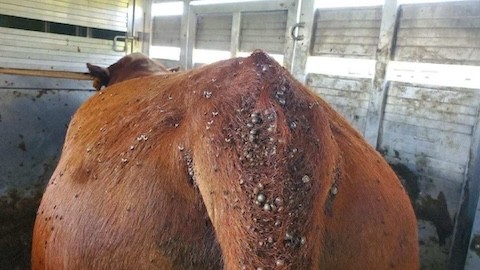 Iowa Department of Agriculture and Land Stewardship has announced the first confirmed case of Theileriosis in Iowa cattle. The disease, caused by a parasite was detected in a herd in southeast Iowa, marking a concerning development for the state’s cattle industry.
Iowa Department of Agriculture and Land Stewardship has announced the first confirmed case of Theileriosis in Iowa cattle. The disease, caused by a parasite was detected in a herd in southeast Iowa, marking a concerning development for the state’s cattle industry.
Theileriosis infects the red and white blood cells of cattle, leading to anemia and, in severe cases, death. The disease is spread by the Asian Longhorned Tick (ALHT), a species identified in Iowa for the first time this year. Experts warn that while these ticks will remain active throughout the summer, infestations typically spike when cattle are first introduced to new pastures, where the presence of hosts triggers females to lay thousands of eggs.
Cattle infected with Theileriosis may show signs of lethargy, difficulty breathing, anemia, jaundice, ventral edema (swelling of the lower body), exercise intolerance, and in some cases, abortions. While symptoms may resemble those of anaplasmosis, younger cattle and calves tend to suffer more severe effects of Theileriosis. Combined with the stress of tick infestations, the risk of death in affected animals can increase significantly.
Veterinarians advise producers who suspect Theileria or ALHT exposure to have samples collected and submitted to the Iowa State University Veterinary Diagnostic Laboratory for confirmation.
In terms of prevention, experts emphasize that insecticide ear tags alone will not provide sufficient protection against ticks. They recommend using additional measures such as backrubbers, routine applications of pour-on insecticides. In cases of increasing tick populations, avermectin pour-on treatments may offer the most effective intervention.
While Theileria and the Asian Longhorned Tick pose serious threats to cattle and other ungulates, officials reassure the public that neither presents a health risk to humans.
Cattle producers seeking guidance on parasite management are encouraged to consult their veterinarians or local extension offices as the summer grazing season continues.


